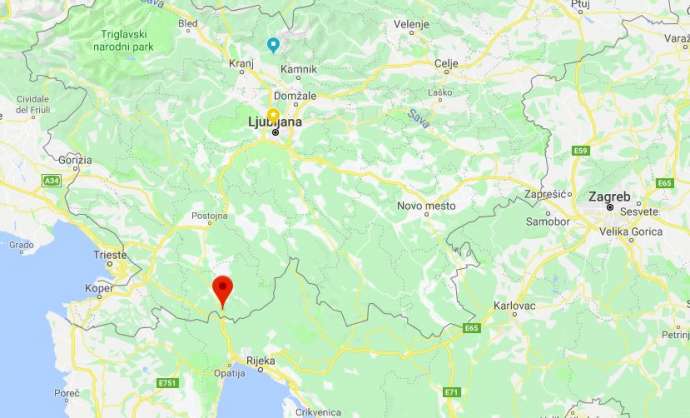STA, 27 April 2019 - Some 400 locals living along the border near the Jelšane border crossing with Croatia staged a rally on Saturday demanding better border protection and rejecting the idea of their community hosting a processing centre for migrants.
Those living in border areas are faced with illegal migrations on a daily basis, and migrations involve pollution of the environment, break-ins and damage to property, said Ivan Cegnar, who heads a local civil initiative that has spearheaded the protests.
"What's particularly worrying is the fear, being unable to freely move in our back yards," said Cegnar, the head of the local government council in Jelšane.
He said the locals demanded that the state protect the Schengen border in line with the law and commitments Slovenia made when it joined the Schengen zone.
Emil Rojc, the mayor of Ilirska Bistrica, said that migrations had led to a deterioration in the quality of living for the locals.
They demand that police beef up security and reject what Rojc said were "excuses" by the police that there are not enough officers to protect the border. He said Slovenia could seek assistance from the EU border agency Frontex.
If needed the army should be called up as well, said Rojc, who hails from the ranks of the Social Democrats (SD) and has raised eyebrows in his party's ranks with his hard stance on migrations.
The protest is the apex of months of mounting opposition in Ilirska Bistrica area, where many migrants chose to cross the border.
In the first three months of this year police in the western Koper District, which includes Ilirska Bistrica, registered 388 illegal border crossings, up from 266 in the same period in 2018.
The area is not the main entry point for migrants, as the vast majority cross further east covered by the Ljubljana and Novo Mesto police.
In the entire country they registered 1,639 attempts at illegal border crossing, an increase of almost 150% on the year before.
But what has further aggravated local woes around Jelšane are contingency plans that involve using buildings near the Jelšane border crossing for a processing centre for migrants in the event of a surge in migrant numbers.
The government has tried to assuage fears by emphasising that this would be a measure of last resort, but it has refused to specify at what point it may be activated.
The municipal council has even tried to stage a referendum on the registration centre, but their attempt has been thwarted by courts with the argument that such issues cannot be subject to referenda. The motion has been put to the Supreme Court.
While driven by local concerns, the protest attracted the interest of rightist parties that have made opposition to migrations a core part of their agendas.
Among the participants were senior Democrat (SDS) MP Branko Grims, the president of the far-right Homeland League (DOM) Bernard Brščič and representatives of the extremist Identitarian movement, which had in previous days urged people to attend the protest.
SDS leader Janez Janša wrote on Twitter that the protest was "the only genuine manifestation on Resistance Day," in that it was targeted "against potential conquerors and their helpers."
Meanwhile, the SD said they did not support the protest, adding in reference to the mayor coming from their ranks that "the party's competent bodies will evaluate the conduct of individual members."







